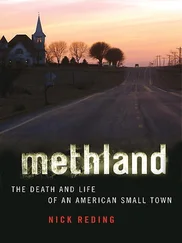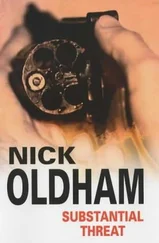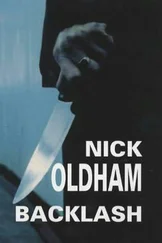He did not need to go to the headland to make his challenge. He could do it here. Must, indeed, because the headland was an evasion. This was the stinking corpse in his own house.
The second thing he might do — the only thing, in his adjusted perception — was talk to the boy.
Things were moving rapidly, but not nearly so fast as they would once he possessed himself of the knowledge in those folders and took direct action against a ship in the Bay of the Cupped Hands to retrieve Sandrine. Stumbling over the heroin in the cave had been bad, but it was in the worst event a defensible position. Trading in drugs was too embarrassing to make much of a fuss over in public. Launching a commando raid on a non-official but very much sanctioned intelligence operation would be another sort of thing. It was more than likely that he would fail, and in failing he would be revealed. He had undertaken missions like that before and been lucky, but you had to be clear about the odds and the consequences of failure. The political leadership had to be clear about the cost.
The boy was to all intents and purposes the political leadership. One could argue that he needed to know the extent of the Sergeant’s exposure, and what he might otherwise offer: a home, a name. A father.
But one might also say that the boy was a child and that it was the job of a father, for just a little longer, to spare his son this sort of choice: I can try to save your mother, but it may mean that I die or am taken from you. An absurd decision, grinding one desperation against another — the sort of dilemma beloved of the four-colour villains in the boy’s comic books. Forcing him to choose was a destruction in all directions: whatever answer he gave he must hate, and by extension hate to some degree the object of his love for pressing it upon him.
And then, too, it smacked of cowardice, of a request to be let off the hook — and laying that at the door of the boy wrapped in the guise of partnership was unconscionable.
So instead of going to the café or the docks to look for his friend, or using the phone to call a summit conference, he made a cup of tea in silence. In the tradition of sergeants he stewed it orange-brown and loaded the cup with sugar so that it was less tea than it was a rich liquid caramel filled with tannins and caffeine. You could have used it for caulking.
With this in hand, he returned to the comms room and rested his backside on the trestle table. He took a sip and winced at the sickly, too-hot stuff as it mixed with the saliva in his mouth. He swallowed. Seven cups of black tea a day increased your risk of prostate cancer, he’d read somewhere, and drinking liquids above a certain temperature did the same for the sort you got in your throat. If it wasn’t one thing, it was another.
He glowered at the filing cabinet, listened to the background hum of the hard drive.
‘I see you,’ he said.
He opened the top drawer, and began to read.
NEXT TO THE comms room was a large high-ceilinged space which had been the operations section back when Mancreu still merited operations, and before that the map room of the colonial house. Victorian Mercator maps complete with sea serpents decorated one wall, but the other was a single blank space twice the height of a man. It was a perfect canvas, he thought, for making information visible and tangible. He fetched a stepladder.
By sunset he had covered the whole wall and was still working, pins and colour coding and lines of ribbon and tape making a webwork across the paint. On one side he had already been forced to create more space, bringing in a whiteboard and some Blu-Tack to continue the chain of inference and connection out into the room. Satellite images and actual schematics of different ships were piled at the foot of the whiteboard waiting their turn. He stretched lines of string and wire through the room and stapled the sheets together over the top so as to make a completely immersive experience. Finally, realising that he needed an actual chart of the ships and their relationship to one another, he turned to the map. The British Empire stretched pinkly across a great swathe of Africa and Asia.
This is all your fault, anyway.
He clutched up a brace of images of the merchant ship Young Eidolon and drove the pins in hard with his thumb. Who owned what. What went where, what did it do and why.
Pride of Shanghai II , liner, retired. Slave ship, bulk transfer rather than bespoke. Temporary goods warehouse. Somali registry.
Life of the Party , factory ship out of Delaware, converted in Newcastle. Pleasure yacht: an offshore brothel and drug den for an international clientele. Mostly what it seemed to be, occasional staging post for political rendition within Asia. Probably Chinese.
Champs Elysées , Very Large Crude Carrier, now a prison ship. Owned from the Horn of Africa, almost certainly a US proxy vessel, but they wouldn’t say, not even — or not especially — to the Brits. Unconventional interrogation and long-term detention for unreportable prisoners and persons too damaged to be tried in public. Oubliette.
Benthic Minogue , pocket dreadnought. Unsubtly disguised iron hand in the Fleet’s glove. Deterrent. Post-Soviet retcon.
The Reluctant Alice , hospital ship. Former whaler. Non-legal medical treatments, reconstructive surgery, organ harvesting and corpse disposal. Also chemical, electroshock and deep-brain stimulated questioning. Brainwashing. Owned by a transnational infrastructure and security company through a variety of cutouts. Parent entity in Iceland, kindly staff speaking good English with Canadian accents.
The paper forest grew up and up and out. More ships, more connections. There were always more, possibilities the Fleet itself probably had not understood. Did the German government realise it was paying two separate services to spy on one another from each end of the bay? Did the Japanese know that their drug-enforcement team was entirely in the pocket of a Kosovar smuggling ring pretending to be a French Interpol squad — and pretending so well that it had scored some notable successes against its own side? It was chaos. And in the chaos, here and there, was Bad Jack: doing favours, greasing the wheels, carrying water. Nothing worked properly without Jack. It must drive them all crazy, except that it was so convenient.
The Sergeant found he was surprised by none of it; suspected sickly that no one would be, that no one would care if he sent it to Channel 4 by overnight bag. A brief scandal, questions in the House of Commons and a lot of braying from the front-bench donkeys on either side of the aisle, and then on to the next thing. The exigencies of security in the post-9/11 world. A nod and a wink: you got caught, but of course we’d have done the same.
I could have known all this weeks ago. But it wouldn’t have helped. These were national secrets, and they were big and awful and dull. The small ones — who killed Shola and why? Who sold guns and bikes to the shore? — were too trivial to be written down.
But not to be spoken, he realised. Small secrets still had to be shared with those who needed to know them, and while there would be no transcript of those conversations, the fact of their occurrence would be noted.
He looked for signals traffic.
Found it.
There, at the time of Shola’s murder, jots and tittles of radio. But not one vessel, not one point of blame. No. A joint effort. He held the sheaf of papers in his hand, traced backwards in time, forwards, ran from one ship to the next with a red highlighter pen, scrawling along the wall. He had the feel of it. This was a favour, and so was this, and here a debt was discharged. Five, ten, fifteen small IOUs were traded, cancelled out. Someone took on the job. It needed doing, so it would get done. He drew more red lines. Four minutes before the shooting. Twenty minutes before. Twenty-five, thirty, thirty-one. Here, there, and everywhere, and look who’s very agitated when it goes wrong. The red marker circled back around and around. There was so much of it. Too much. He would find out, but it would take days. He didn’t have days. Shola’s ghost was jogging his elbow: ‘Lester, for God’s sake! I can wait, I’m already dead! Find her! Find Sandrine!’
Читать дальше
Конец ознакомительного отрывка
Купить книгу











